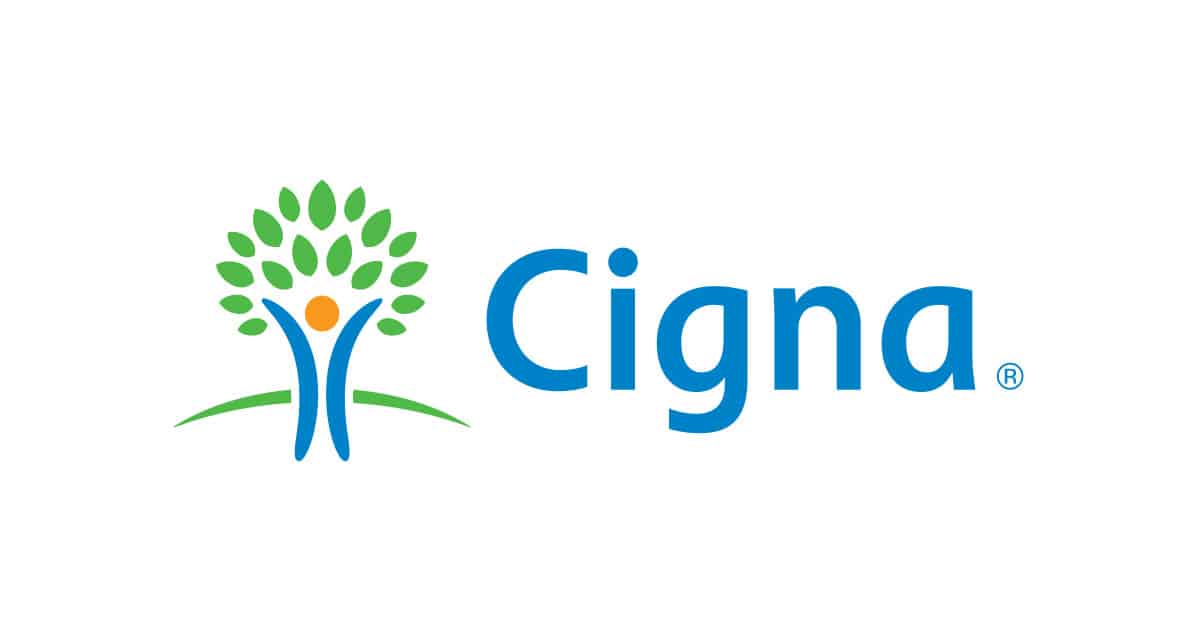Table of Contents
What is Borderline Personality Disorder (BPD)?
Borderline Personality Disorder (BPD) is a mental health disorder that can significantly impact an individual’s self-image and relationships. It often distorts how a person perceives themselves and others, causing tensions in personal relationships. Those with BPD may have a skewed or imbalanced view of themselves and others they interact with. Typically, the onset of this disorder occurs by early adulthood, and with professional treatment, many people see an improvement in their condition.
Interestingly, BPD is diagnosed more frequently in women than in men, a discrepancy that may be influenced by gender-related differences in seeking treatment or societal perceptions of emotional expression. However, it’s essential to recognize that BPD affects individuals of all genders, and understanding these nuances is crucial for effective diagnosis and treatment.
The development of Borderline Personality Disorder can be linked to various factors such as genetic predispositions, serotonin production issues in the brain, or early traumatic experiences. Studies have shown that the prevalence of BPD stands at 1.6% in the general population and rises to 20% among psychiatric inpatient populations. Characterized by extreme mood swings, rapid changes in interests and values, significant uncertainty about self-identity, and often engaging in risky behaviors like drug abuse or self-harm, BPD is a complex disorder requiring careful attention and management.
Types of BPD
While BPD is a singular diagnosis, it can manifest in various ways, with individuals displaying different combinations of symptoms. Mental health professionals have identified four subtypes of BPD based on these symptom patterns:
- Discouraged BPD: Characterized by feelings of worthlessness, neediness, and a strong fear of rejection.
- Impulsive BPD: Marked by impulsivity, emotional instability, and a tendency to engage in risky behaviors.
- Petulant BPD: Involves unpredictable mood swings, irritability, and an intense fear of abandonment.
- Self-Destructive BPD: Features self-harm tendencies, self-sabotaging behaviors, and pervasive feelings of emptiness.
Our empathetic mental health professionals are experienced in treating these diverse manifestations of BPD, ensuring that individuals receive the targeted support they need.
Finding Residential Treatment for Borderline Personality Disorder
Residential treatment can be a solid stepping stone for individuals aiming to manage their BPD symptoms better. The treatment journey begins with a thorough diagnosis to understand each person’s unique situation and mental health care needs. Following the diagnosis, a tailored treatment plan is crafted to align with the individual’s treatment objectives.
Within a residential treatment setting, individuals gain access to various therapies and support services. A team of seasoned psychiatrists, mental health counselors, and therapists provide expert and compassionate care to help each person reach their potential, enabling them to return to their daily lives better equipped to manage their BPD symptoms and foster healthier relationships.
Diagnosing BPD: Assessment and Evaluation
Accurate diagnosis of BPD begins with a comprehensive assessment and evaluation conducted by our experienced mental health professionals. This process typically involves a thorough review of an individual’s medical and psychiatric history, an exploration of their emotional state, and an examination of the impact these symptoms have on their daily functioning and interpersonal relationships. Identifying the presence of BPD is vital for developing an effective, personalized treatment plan that addresses the unique needs and challenges faced by each individual. Our team at West Georgia Wellness Center is dedicated to providing empathetic and evidence-based care throughout the assessment and diagnostic process.
Signs of Borderline Personality Disorder
The signs of BPD can vary, with some being more apparent than others. Common signs and symptoms include:
- Trouble regulating emotions
- Low self-esteem
- History of unstable relationships
- Rapid changes in opinions about others
- Fear of abandonment
- Self-injury or other harmful behaviors
- Impulsivity, often engaging in risky behavior
- Quick to anger or experience other mood swings
- Refusal to take responsibility
- Paranoid behavior
- Suicidal thoughts or feelings
- Extreme “black-and-white” thinking
- Sudden and intense shifts in perceptions and moods
- Difficulty building trust and maintaining meaningful relationships
It’s important to note that not everyone with BPD will exhibit all these signs, but many may exhibit several over their lifetime. These signs often become noticeable in one’s teens or early adult years, although they can manifest in later childhood as well.
Co-Occurring Disorders
The complexity in diagnosing BPD partly stems from its frequent co-occurrence with other mental health conditions like depression, anxiety, or addiction. It’s essential to communicate all symptoms and concerns during a psychiatric evaluation.
Risk Factors for Borderline Personality Disorder
Research suggests a mix of genetic, environmental, and societal influences can increase the risk of developing BPD. Some contributing factors include:
- Genetic predisposition
- Brain structure and functionality anomalies, especially in areas governing impulse control and emotional regulation
- Traumatic events during formative years or volatile relationships
Difference between Borderline Personality Disorder and Bipolar Disorder
Though BPD and bipolar disorder both involve notable shifts in mood and behavior, they are distinct conditions. In BPD, mood and behavioral shifts often occur rapidly, especially during stressful situations or interpersonal interactions. In contrast, bipolar disorder presents with more extended mood phases that are less influenced by immediate external factors. Moreover, individuals with bipolar disorder often experience marked variations in energy and activity levels, a feature not typically seen in those with BPD.
How BPD is Treated?
Residential treatment for Borderline Personality Disorder (BPD) offers a variety of therapeutic methods. One of the primary approaches is Dialectical Behavioral Therapy (DBT), a form of talk therapy that has shown effectiveness in treating many individuals with BPD. DBT, a modified version of Cognitive Behavioral Therapy (CBT), is also useful in addressing other mental health disorders.
DBT aids individuals in managing their emotions in a healthier manner. Therapists trained in DBT guide individuals in evaluating their emotional and behavioral responses, helping identify irrational reactions. Through this, individuals learn to modify these reactions to engage in more rational emotions and behaviors. They also acquire healthy coping skills that become ingrained habits over time. Moreover, individuals learn to enhance their self-esteem, which in turn, reduces negative reactions towards others.
Treatment for BPD was traditionally complex with limited success. However, recent advancements in evidence-based therapies have demonstrated that individuals with BPD can achieve symptom reduction, improved functionality, and an enhanced quality of life.
Effective therapy requires dedication, patience, and persistence. The treatment regimen may include psychotherapy (or talk therapy), medication, or a combination of both. In cases where an individual is extremely distressed or poses a threat to themselves or others, brief hospitalization might be recommended. During this time, healthcare professionals work alongside the patient to develop a comprehensive treatment plan.
It’s important to note that many individuals diagnosed with BPD also struggle with other mental health disorders such as:
- Mood disorders (in 80% to 96% of BPD patients).
- Anxiety disorders (88%).
- Substance abuse disorders (64%).
- Eating disorders (53%).
- Attention-Deficit/Hyperactivity Disorder (ADHD) (ranging from 10% to 30%).
- Bipolar disorder (15%).
- Somatoform disorders (10%).
BPD Psychotherapy Interventions
Psychotherapy is the preferred treatment method for BPD. Its goal is to assist individuals in exploring the underlying factors influencing their thoughts and behaviors, enabling them to build more constructive interpersonal relationships.
When BPD co-occurs with addiction, a multifaceted strategy addressing all aspects of the disorder and addiction is adopted. Treatment can include:
- Dialectical Behavior Therapy (DBT): Customized for BPD patients, DBT helps in accepting personal realities and behaviors. It imparts essential skills for managing intense emotions, reducing harmful behaviors, and improving relationships.
- Cognitive Behavioral Therapy (CBT): A goal-oriented approach, CBT enables individuals to closely examine their thoughts and emotions, understanding how thought patterns impact behaviors. The therapy helps replace detrimental thought processes and habits with healthier alternatives.
- Group Therapy: Conducted in a group setting, this therapy fosters positive interactions and effective self-expression among members, under professional guidance.
- Additional therapeutic approaches include:
- Individual Therapy
- Support groups
- Family therapy
- Holistic treatment
- Medication-Assisted Treatment to address co-occurring mood swings, depression, and anxiety
The Impact of Untreated Borderline Personality Disorder
When an individual is diagnosed with Borderline Personality Disorder (BPD), it’s crucial to seek residential treatment as early as possible. Living with BPD without professional intervention can cause undue suffering. The strain isn’t only on the individual but extends to their family and friends as well, often reflecting in troubled and unstable relationships. Relationships with partners, children, parents, and other family members are frequently impacted, as are friendships. Additionally, the effects of BPD may adversely affect a person’s performance at work or in school.
Individuals with BPD are often prone to engaging in risky behaviors, such as reckless driving or practicing unsafe sex. These behaviors elevate their risk for adversities like car accidents, unintended pregnancies, and sexual assault. Self-harming activities also pose the risk of physical injury and scarring. The likelihood of suicide increases for those who do not seek help for their BPD, highlighting the importance of early and effective treatment.
Can Borderline Personality Disorder be Prevented?
While Borderline Personality Disorder (BPD) cannot be entirely prevented due to its multifaceted origins, understanding and addressing its early indicators can make a significant difference. BPD often intertwines genetic predispositions, neurological factors, and environmental triggers. Those with a family history of BPD are indeed at a higher risk, underscoring the importance of being vigilant about the disorder’s potential signs.
Engaging in regular mental health check-ups, even without overt symptoms, can be beneficial. Such proactive approaches can offer insights into one’s mental well-being and pave the way for early intervention strategies if required. Establishing strong support systems, ensuring access to counseling, and fostering open communication about mental health within families and communities can also play crucial roles in minimizing the impact of potential BPD symptoms.
In the end, while complete prevention might not be feasible, early recognition, comprehensive understanding, and prompt therapeutic interventions can make living with or at risk of BPD more manageable. It’s imperative to stay informed and maintain an open dialogue with healthcare professionals to ensure the best possible outcome.
BPD in Men and Women: What’s the Differences
Borderline Personality Disorder affects both men and women, yet women are more often diagnosed. Men seeking help for BPD-like symptoms frequently receive diagnoses for other conditions such as bipolar disorder, ADHD, PTSD, or depression, possibly due to biases in the mental health field. Symptoms of BPD manifest similarly in both genders, but Borderline Personality Disorder in men may show more aggression, be overly controlling, intensely jealous, quick to express contempt, and prone to sudden mood swings and explosive anger. This aggression can alienate loved ones, leaving men with BPD without support and less likely to seek or receive the help they need.
Men with BPD are more prone to substance use disorders and antisocial personality disorder compared to women, with a study showing 58% of men with BPD having a substance use disorder versus 44% of women. Their lifetime risk for substance abuse exceeds 80%. Consequently, men with BPD might prioritize alcohol and drug rehab, mistaking their BPD symptoms as solely substance-related. This underlines the importance of recognizing and treating BPD directly, alongside any co-occurring disorders, to ensure effective recovery and management of the disorder.
Find Help for Borderline Personality Disorder in Atlanta, GA
Are you struggling with borderline personality disorder and seeking assistance to manage your mental health better? At West Georgia Wellness Center, we provide top-notch residential treatment for borderline personality disorder in a comforting, homely facility. Our seasoned team comprehends the complexities associated with this mental health condition. We offer a variety of therapy options tailored to empower individuals in managing their mental health and gaining a sense of control.
Interested in learning more about our program? Call us today at 470-347-8122 and our dedicated staff will walk you through the process.














